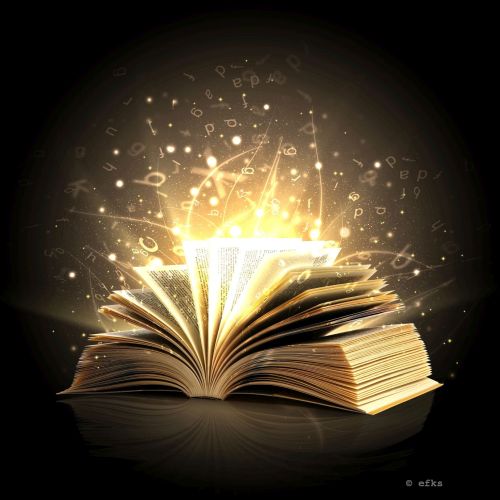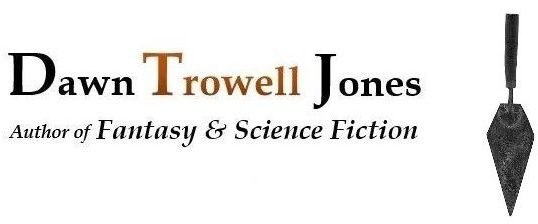 My brain told me to write this.
My brain told me to write this.
So, we start with a love for stories and the art of storytelling. To enjoy more of what we love, we learn to read—and because we love stories and we love to read, we come to appreciate the power of words. And then, like all good monkeys, sooner or later, we try to whip up a few of our own.
My earliest storytelling memory is of an afternoon when I’d spontaneously composed a lengthy ballad straight off the top of my head. It was grand—from the perspective of an eight-year-old. I remember performing my masterpiece for my younger sister while we played with Barbies on the floor. I felt drained but deliciously happy I’d gotten the whole piece out. Only moments after, I tried to recapture what I’d sung. Tragically, I could not. I was eight. All I had left was that feeling of the journey.
Lesson learned: Write stuff down.
But the feeling survived, and I still carry with me a love for the epic narrative. Several times, while still in grade school, I tried to write one, but I was too impatient and hated falling short of my expectations. Like a little druggie, I wanted my fix, so I sought the books and movies that gave me the thrill without so much personal cost. Lives, all the lives I could stomach, like the Titan, I was gobbling them up, all their hopes and worries, their tragedies and triumphs.
When I drifted into creating again, I was a teenager. I finally discovered the magic of successfully putting a narrative on paper. I wrote mostly poems—and when I read them late at night, they danced for me, and the experience was so wonderful, I peopled my world with these little angels. And to see their dance, all I had to do was read them. What a powerful experience. But how narcissistic, reading my own writing for pleasure! At first, that’s how it goes, I guess. I was like a two-year-old with a mirror. But later I understood that these angels I’d created (usually dour but sometimes sweet) could dance for others, albeit a little differently, and that was another revelation. This is how literature lives, I thought, and if I want to improve my writing, I ought to at least attempt perceiving it through the eyes of others.
A similar idea cropped up with regards to reading, too. Particularly in my twenties, I used to try to imagine the private sentiments of authors while I read their books—not so useful for style analysis, I guess, but it was another important exercise in empathy that I enjoyed.
The first time I attempted a writing career, my brain embraced its mission rather too emphatically. I began to describe everything I encountered all the time in a constant running commentary in my head. Every trivial occurrence of my life. I’m always talking to myself in my head—that’s not significant—but not only was I composing, I was also editing, and this grew to be a bit much. No experience was too small that I didn’t start to qualify and quantify it and fit it into a terse emotive phrase, and then reject and reorient it if I didn’t feel I’d captured the moment—or if the moment needed a little embellishment.
But most of all, reading changed. It was almost impossible to read for enjoyment anymore. I couldn’t allow myself to be swept away—I had to figure out what the author was doing. And now my focus was all style and content. I tore the works apart, my precious adventures, and after a while, for me, they came to feel kind of dull and picked over. And what’s worse, whenever I did manage to fall in love with a story, my awe degenerated into envy! I simply could not write at that level, not like the Greats, those bastards….
…. Not yet.
Well, we writers are a brazen bunch.
But forget ‘not yet.’ The real result is ‘not at all’ if we’re not writing. And that’s that. Writers write.
I took almost a decade off from creative writing. I wrote software documentation, legal briefs, and professional correspondence, and those were some pretty sorry substitutes.
But here we are! I’m writing fiction again. In fact, I’ve recently finished the first draft of a 600-page paranormal/sci-fi novel, which I’m currently editing. (Oh, the pain! The joy!)
And so we get to the heart of the matter: Writers write, but they also read. This is not a chore. After all, we got here because we love stories. But we’re putting ourselves out there as creators in our own right. We’re the magicians now. What price do we pay for the pleasure?
For one, I’ve always read slowly, and now I’m slower, because again my mind actively analyzes what I read for style and content all the time. If I love what I’m reading, I want to know why. This is to be expected. All writers do this. If we’re not observant, how can we expect to grow?
But sadly, this also means we have to train ourselves to identify problems in fellow writers’ works or we won’t see them in our own. Of necessity, we must hold up that dreaded critical eye. But like the Gray Witches of Greek mythology, we need, from time to time, to be able to put the eye down.
I’m sorry to say our present culture has no patience for painstaking craftsmanship. We know that quality takes time. Even so, we still have to eat, and we must appear current. So many of us postpone our best efforts in order to buy time. Essentially we expend a great deal of energy saying, “Looky here! Look at the bird!”—a flash-in-the-pan which we also must create. Meanwhile, we’re frantically trying to keep calm and get on with the invaluable task of trying to generate something new, balanced, and beautiful—something of quality. At the speed of now.
Since I’m aware of this pressure and prone to empathy, when I’m reading a story (whether indie-published or publisher-published), and it’s riddled with typos and other errors, and in the midst of these errors I find fresh ideas, powerful descriptions, or characters I care about, some or all of these good things, buried in a chaotic unrefined mess—I think, how unfair. Where have all the editors gone? I don’t expect authors to be able to do it all well and fast. And then I think, “I’ve also been hasty. That could be me! It’s me!” and I suffer right along with them.
New writers are especially pressured to rush, I think, and many of the freshest ideas, if they ever get through, come to us in such a jumbled state, we as readers have to work very hard to figure out what that fresh idea is.
Writers feel pressed for time. But so do readers. That’s our modern life.
I’m going to say now what I wish someone would have said to me early and often: Never be afraid to begin at the beginning. That’s where many of us are.
And truth be told, every time we read, no matter what, we’re going to learn something. But, as the nutritionists say, “We are what we eat,” and we tend to write what we read. So I, for one, will strive for a healthy balance.
This is a price we pay to do what we love as beautifully as we can. This sort of deliberateness is a sacrifice. Discipline is a sacrifice of liberty, because wouldn’t it be wonderful if we had ‘world enough and time’ to indulge our whims and sample a little of everything? I’m curious about what other writers have to say and what they can do. And no matter what level of expertise we attain, I think we’ll always want to improve.
This is some of what I think about when I read.

Pingback: Last Weeks Writing Links For 11/30-12/5 | B. Shaun Smith
I love this Dawn!! Beautifully written! You echoed a lot of things I have been thinking. It is so hard for me to become immersed in reading a book the way I used to. Like you said, it is impossible to turn my critical side off when I read. Instead of “What is going to happen next?” I am thinking, “Okay, I see what the author is trying to do here but I would have approached it differently.” Excellent post!! 🙂
Thank you so much, Lisa!